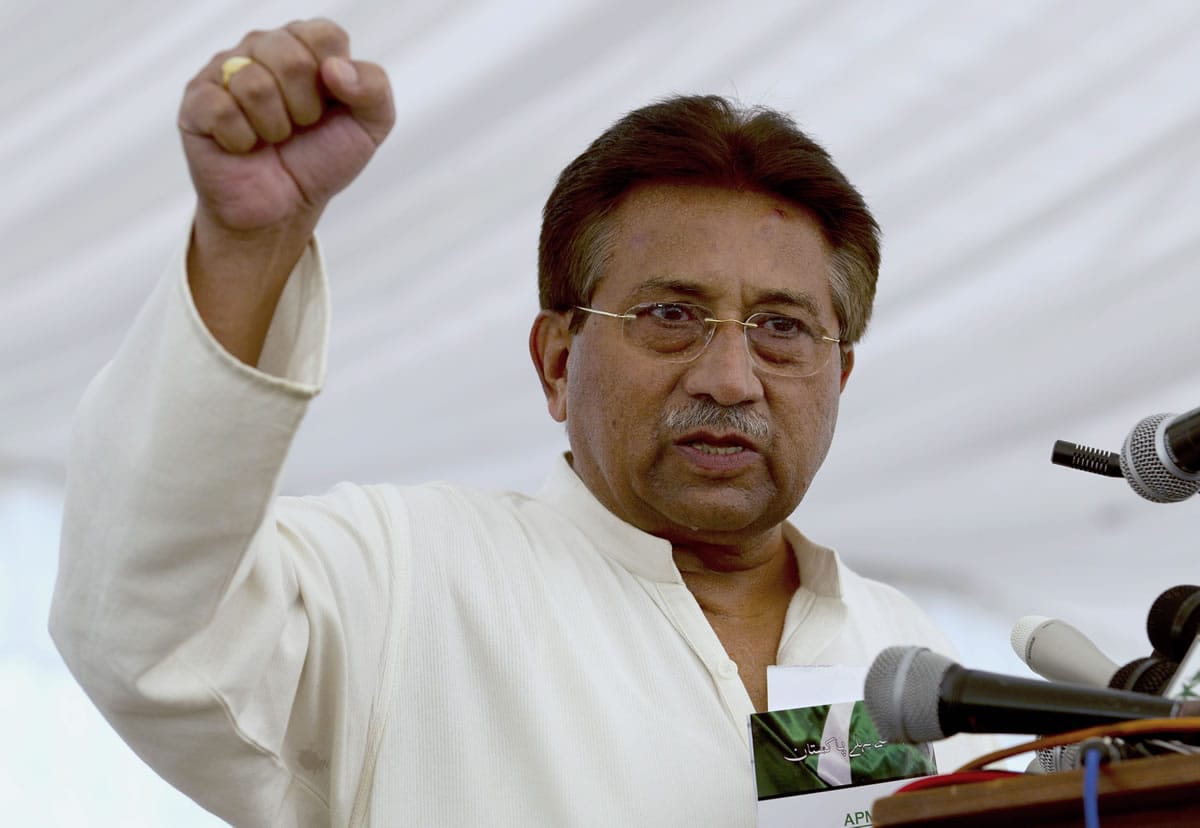ISLAMABAD, Pakistan — Former Pakistani president Pervez Musharraf, scheduled to face charges of high treason this week before a special tribunal, on Sunday adamantly defended his decision to suspend the constitution in 2007, an act that has now led to the spectacle of a one-time military ruler being brought before civilian courts in a country long dominated by the army.
In his first interview with foreign journalists since being released from house arrest in November, Musharraf, 70, said the prosecution “smacked of a vendetta” by the government. The current prime minister, Nawaz Sharif, is the same politician Musharraf ousted as prime minister in a 1999 coup; Sharif was tried for murder and treason and sent into lengthy exile.
Says he had support
Musharraf veered between jocular retorts and emotional pleas in the lengthy meeting at his country manse near the Pakistani capital, decorated with ceremonial swords and rifles. He refused to say whether he would appear in court Wednesday as required, but his comments previewed likely defense arguments in an extraordinary case that has raised fears of new strains in Pakistan’s delicate balance of civil and military power.
“Where is the treason?” Musharraf demanded, asserting that he had acted with support from top civilian and military officials when he declared the 2007 state of emergency and that all his actions as president for nine years had been patriotic rather than self-serving.
“I have done so much for my country and for the people of Pakistan. Is this what I deserve?”
Musharraf depicted his short-lived 2007 crackdown as needed to stop an over-ambitious judiciary from interfering in his efforts to combat Islamist terrorism and extremism, but it was viewed by many as a dictatorial tool to cling to power. The resulting wave of protests forced him to resign as army chief, hold new elections and step down from office in 2008.
For the next five years the former ruler lived in self-imposed exile, but he returned last March in a short-lived bid at a political comeback. Instead, he found himself facing charges of murder in two political assassinations and a 2007 military raid on a fundamentalist mosque, as well as the state of emergency. If convicted of treason, he could face the death penalty or life in prison.
Petitions filed
Yet while Musharraf insisted he had no fear of facing the courts and no intention of trying to flee the country, his lawyers have filed several petitions claiming the judicial proceeding is biased and unconstitutional, which he hinted might keep him from appearing in court. More significantly, the retired general tried to depict the charges against him as a broader effort to attack the military as a whole.
“The army has always been the center of gravity in Pakistan,” he said. “Whoever does wrong against the army chief certainly causes disturbance in the military ranks.” But Musharraf did not repeat a previous comment that the prosecution was a “vicious attempt to undermine the Pakistani military,” and said he would rather not speculate on how the army views his case.
Some Pakistani analysts have noted that the current army leadership is not personally committed to Musharraf and should not feel threatened by the charges against him, but others have warned that if the case drags on through appeals, it could embroil other former officials and lead to increasing unrest in a powerful military establishment that has repeatedly intervened in civilian rule.



